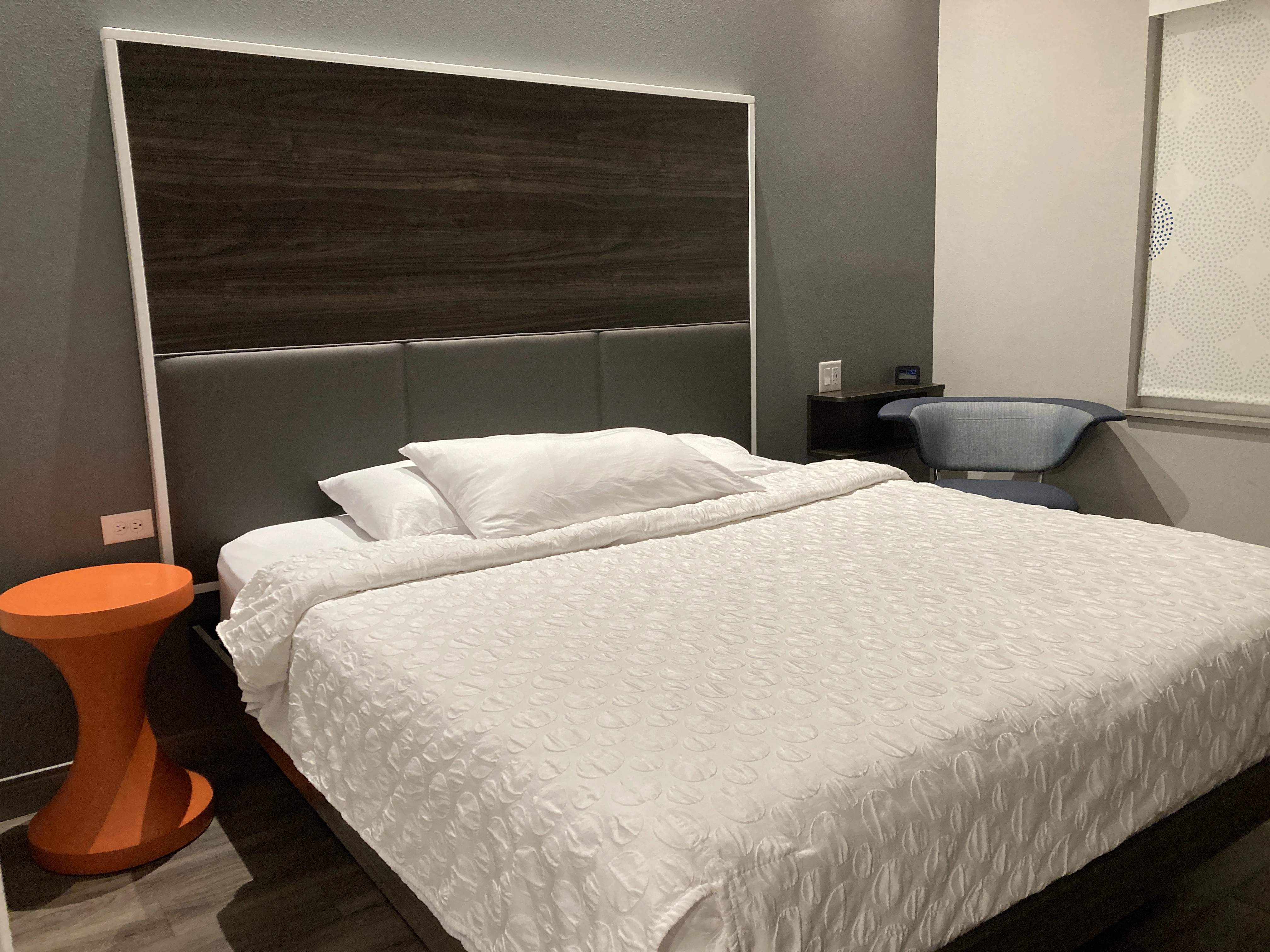
Travel Tips
Is the Digital Nomad RVer Lifestyle Right for You?
Have you ever thought about spending your life on the road, making a living while riding on four wheels? If so, you’re certainly not alone. According to the RV Industry Association, more than one million Americans live full-time in their recreational vehicles. And while not all of those individuals are digital nomads, remote workers are a growing subset of this group. In other words, many of those who can work from home are electing to make the road their home, exploring the country while still maintaining a career.
Let me say off the bat that, as someone who has mostly stuck to compact sedans and called his father-in-law to drive the U-Haul we rented for moving, I seem like that last person who would take up RVing. That said, if I were to get over that fear, I actually see it as quite an intriguing lifestyle in the same way that I’ve found living in a tiny home oddly attractive. Moreover, my wife and I have flirted with the idea of becoming digital nomads before, settling for shorter workations instead.
In any case, if you’re braver than me and thinking about digital nomad RVing, there are a few things I’ve found that should be considered. From what you’ll need to what benefits you may reap, let’s take a closer look the full-time RVing life:
 What You’ll Need to Be a Digital Nomad RVer
What You’ll Need to Be a Digital Nomad RVer
A recreational vehicle
Need I say more? In all seriousness, choosing a vehicle to live in full-time is a big decision that can take a lot of thought. Not only are there several different types of RVs to choose from but each with their own set of pros and cons — some of which will directly impact digital nomads.
Since you’ll likely be spending more time inside of your vehicle than some other RV owners, you’ll first want to ensure that you have comfortable accommodations. At the same time, if you’re not used to driving a large vehicle, you may not want to go too big too fast. Along those same lines, larger vehicles may include other complications such as the need to acquire a special driver’s license (more on that in a bit).
Another aspect to consider is whether you want to purchase a new or a used RV. Just like with used cars, buying a pre-owned RV might save you money upfront but may come with a reduced warranty and more maintenance issues down the line. Similarly you’ll also want to ponder whether to finance your vehicle or pay in full, as well as whether to buy from a dealer or a private seller.
If you’re not 100% sure what type of RV you want or you’re not quite ready to buy, you can always rent a vehicle and try your first RV “workation.” Both RVShare and Outdoorsy are peer to peer rental sites (think Airbnb for recreational vehicles), allowing you to choose from a number of available vehicles people are renting in your area. This can be a great way to get your proverbial feet wet and see if digital nomad RVing is for you.
A remote work job
In recent years, the concept of being of “digital nomad” has grown tremendously as more jobs that can be done using just a laptop and an Internet connection crop up. Beyond a growing list of companies that have started allowing some of their staff to telecommute, careers such as freelance writing, digital assisting, and many others have made it possible for a rising number of individuals to work from home or work from anywhere. If you’re wondering what skills you have that could translate to remote work, I’d suggest starting with this guide, offering some resources and sites you can utilize to find gigs in your area of expertise.
Similarly full-time RVing is a popular pastime for those enjoying early retirement. On that note, if you’re thinking of pursuing early retirement, semi-retirement, or taking a work sabbatical, I’d highly recommend checking out Tanja Hester’s new book Work Optional, which I recently had a chance to review. Aiming for this goal doesn’t mean you can’t start as a digital nomad RV now as you can always transition into an early retired RVer along the way. I’m not completely familiar with all of the rules of royalty, but I’m pretty sure such a strategy would make you King (or Queen) of the Road 😉
WiFi
Assuming you’ll need to work while RVing, you’ll surely require a connection to the Internet. Of course this isn’t always easy while on the open road. However there are now several technologies that make it possible.
One potential solution is to simply utilize mobile tethering. Most smartphones will allow you to turn your device into a hotspot, allowing your computer, tablet, or other devices to connect to your cellular network. The problem is that your carrier might have a low cap on how much data you can use while tethering or this could come at the expense of your regular cellular data allotment.
That’s why another popular choice is to purchase a separate WiFi hotspot, complete with its own data package. These devices can often be purchased through your cellular provider or you can opt for standalone services like Solis that offer monthly, daily, or per GB data plans (sidenote: you can use promo code MONEY30 at checkout to get 10% off your Solis order). When shopping around for hotspots, you’ll definitely want to consider the network as well and ensure that you’ll be able to connect from wherever, not just in big cities. Since it can be difficult to know ahead of time which device/service will meet these needs, you’ll definitely want to look for recommendations from other RV digital nomads before making your selection.
If your regular hotspot still won’t cut it, there are additional products you can try as well. Among them is WeBoost, which offers a number of devices meant to enhance the cellular signal on-board your RV. Sadly I can’t speak to how effective these devices are but they may be worth looking into if you’re worried about shoddy reception.
Of course another option — or at least occasional option — is to do your work from coffee shops, libraries, or some of the numerous establishments that now offer free WiFi. Clearly the first problem with relying on this route is that it can be inconvenient to have to track down these locations each day. On top of that, there are inherent issues and errors that come with public WiFi, ranging from slow speeds to security concerns. Therefore, if you are going to be connecting to such networks often, you’ll probably want to invest in a VPN (virtual private network). Lastly, when cruising for free WiFi spots, make sure to show courtesy to these establishments by 1) buying things from them 2) not taking up more space than necessary and 3) cleaning up after yourself.
A special driver’s license (possibly)
Something you may or may not have considered is whether or not you’ll need a special license to legally operate your recreational vehicle. Well, the answer is that it depends. Several states do require you to obtain either a special license or commercial driver’s license (CDL) in order to operate an RV, although this only applies to vehicles weighing more than 26,000 pounds. Considering that Class C RVs average weight is less than 12,000 pounds, that might not be a problem. However, at their largest, some Class A vehicles can top 30,000 pounds — thus necessitating additional licensing in some states.
According to Campanda’s guide to the subject, there are currently 17 states that require large RV operators to obtain either a special driver’s license or a commercial driver’s license. In some cases, the standard 26,000 pound limit is the deciding factor, although some states like Wisconsin determine the need for a CDL by the length of the vehicle (over 45 feet requires one). Of course these rules are also subject to change, so if you want to ensure you’re in compliance, be sure to check with your state’s DMV to confirm you have the proper licensing. Alternatively, consider buying or renting a smaller vehicle so you can steer clear of these complications.
A mail service
Maybe I’m the only one, but among the main questions that come to mind when I think about being a digital nomad or RVing full-time is “how do you get your mail?” Well, it turns out there are a few options. A more traditional choice is to get a P.O. box. — although this would usually mean returning to the same city often enough to ensure your box isn’t overflowing. Meanwhile, a nifty alternative may be employing a professional mail forwarding service. One that I came across on my preliminary search was Escapees. In addition to having them scan your mail so you know what’s coming in, you can also ask them to forward your mail to a chosen address. I’m sure there are plenty of similar companies to look into as well but, I have to say, these sound like pretty cool services.
 The Perks of Being an RV Digital Nomad
The Perks of Being an RV Digital Nomad
See the country!
Clearly this is the big reason you want to be a full-time RVer, right? Recreational vehicles allow you to not only explore parts of the country you might not have seen before but also enables you to escape bad weather and soak in the sunshine. Plus, if you find a place you like and want to stay, there’s really no reason you can’t. This is the type of freedom that RVers rave about and that has attracted so many digital nomads to the lifestyle.
Make friends
While you might assume that traveling in a vehicle might be a lonely prospect, these days there are a growing number of RVer communities thriving online and around the country. From Facebook groups and message boards to in-person meet-ups, these communities can help answer some of the questions you have about the lifestyle as well as provide friends you can hang out with wherever you go. By the way, there are also several digital nomad groups as well and, of course, communities of specifically RVing digital nomads — so don’t feel like you ever need to be left out!
Skip rent
Incidentally, RVing full time doesn’t just offer the opportunity to travel domestically but may even free up funds to head overseas as well. That’s because, if you’re really living in your vehicle full time, you won’t need to worry about paying rent elsewhere. Once again, RVing is all about freedom — and that could definitely include financial freedom.
Earn passive income
If living in your RV full-time sounds like a bit too much for you, that’s fine! In fact, if you anticipate taking time away from the road, you can turn your vehicle into (relatively) passive income. How? By renting out your RV.
As I mentioned, sites like RVShare and Outdoorsy allow you to list your RV for others to rent. While there are no upfront fees for listing your vehicle, the sites will take a cut of your rental revenue. However, in exchange for that, you will be provided with insurance for your vehicle while it’s in the renter’s care and, of course, be provided with a platform to reach renters in the first place. Admittedly, renting your RV isn’t completely passive income as you will need to worry about cleaning and maintaining your vehicle for rent, managing your listings, and more. That said, this could be a great way to subside your costs of owning an RV or even prove to be an extra source of income.
With both the RV and digital nomad lifestyles rising in popularity, it only makes sense that the two would intersect. These days, many travel-loving remote workers are taking to the road and taking their jobs with them. While embracing full-time RVing does come with a number of considerations you’ll need to make, there are also several benefits to take advantage of. So what are you waiting for?
Per FTC guidelines, this website may be compensated by companies mentioned through advertising, affiliate programs or otherwise. (Note: advertising relationships do not have any influence on editorial content. Advertising compensation allows Money@30 to provide quality content for free. All editorial opinions are those of Kyle Burbank.)
Leave a Reply
You must be logged in to post a comment.





RVing for me is an exciting lifestyle but only for adventurous souls that one day I wish I’d become.
RV living is what I dream of on my retirement age.
More and more are now venturing with RV living. It really depends on your priorities and needs but with the idea of living where you want at any time sounds fun.
With my nature of work, it’s not for me but I really admire those RV living. With such minimal and adventurous lifestyle.